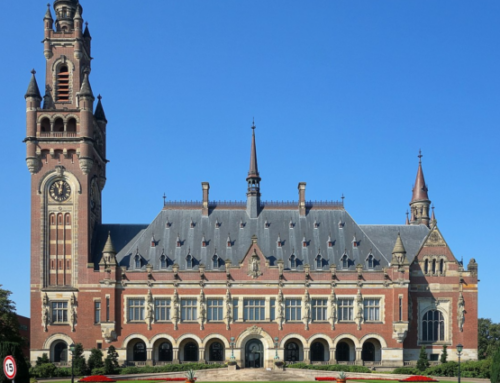Plenty of ink has been well-deployed in commemorating Margaret Thatcher (1925-2013), Britain’s greatest statesman since Churchill, who rolled back Britain’s command economy and, together with Ronald Reagan and The Blessed John Paul II, helped to end communism which was the most murderous ideology in human history. So, for now, let us pause only to look at a few paradoxes still surrounding her.
Hours after her death, the hateful glee unleashed by British Leftists and assorted Progressives in media is nothing short of obscene, especially in a country where people scramble to find a kind word to say about even scoundrels and traitors recently dead. Even the majority of UK conservative commentators temper nearly their every paragraph with mumbled half-apologies for how she was perceived, usually by her enemies. It is, alas, a testament to how badly Mrs. Thatcher failed to stop the onslaught of Progressivism, now in utter control of UK culture while busily uprooting our values and destroying our sense of history. The leaders of Britain’s Conservative Party, so keen for gay marriage and the state persecution of Christians while so reluctant to make hard economic decisions, are more the bastard offspring of Progressivism than any children of hers.
I reckoned, a decade ago, that one-third of Britons despised Mrs. Thatcher, a third venerated her, and a third thought her works were unpleasant but required. That has no doubt worsened after more Progressive propaganda, but only at home. Abroad is different.
 Years that I spent working alongside of government leaders, civil servants, economists and journalists in Africa, South Asia and the Caribbean, provide another view. Their love for Thatcher is deep and unalloyed. The intrepid Zimbabwean economists hanging on for dear life until their tyrant dies or is overthrown; the proud Indian civil servants and entrepreneurs watching their homeland become an economic world power; the Caribbean politician struggling to help his people better survive on a tiny island rather than immigrate to earn a living – they worshipped her alive, venerate her memory and will continue to follow her example. As economic power shifts to new regions, yesteryear’s outcasts may determine the lasting judgement of history.
Years that I spent working alongside of government leaders, civil servants, economists and journalists in Africa, South Asia and the Caribbean, provide another view. Their love for Thatcher is deep and unalloyed. The intrepid Zimbabwean economists hanging on for dear life until their tyrant dies or is overthrown; the proud Indian civil servants and entrepreneurs watching their homeland become an economic world power; the Caribbean politician struggling to help his people better survive on a tiny island rather than immigrate to earn a living – they worshipped her alive, venerate her memory and will continue to follow her example. As economic power shifts to new regions, yesteryear’s outcasts may determine the lasting judgement of history.
So, perhaps as my father says, “a lesson of Jesus Christ is that you’re never a hit in your own home town.” I have no idea how many Chinese will mourn Lady Thatcher, but one bets that they outnumber the sixty million British. The same is true in America, of course; and she reciprocated their love completely.
The fulminating hatred of her shown by the British Left is, as Gilbert and Sullivan sang: “A most ingenious paradox (We’ve quips and quibbles heard in flocks, But none to beat this paradox!)” For in three respects the Left should have loved her, or at least granted her substantial respect.
 Firstly, she ran a bulldozer over old-fangled notions of class bigotry by making Britain vastly more open and meritocratic. Her team began that way with the brilliantly humane strategist Keith Joseph and the diplomat-barrister Malcolm Rifkind (Jews from Leeds and Edinburgh respectively), and the former commercial airline pilot who became her most visionary, tough and loyal supporter, Norman Tebbit. (One was knighted, two now sit in the House of Lords). Economic reforms put smart, hard-working Cockneys into the finance sector and other working-class youth into boardrooms for the first time; hardly surprising from a provincial grocer’s daughter.
Firstly, she ran a bulldozer over old-fangled notions of class bigotry by making Britain vastly more open and meritocratic. Her team began that way with the brilliantly humane strategist Keith Joseph and the diplomat-barrister Malcolm Rifkind (Jews from Leeds and Edinburgh respectively), and the former commercial airline pilot who became her most visionary, tough and loyal supporter, Norman Tebbit. (One was knighted, two now sit in the House of Lords). Economic reforms put smart, hard-working Cockneys into the finance sector and other working-class youth into boardrooms for the first time; hardly surprising from a provincial grocer’s daughter.
Two years before her 1979 victory, I recall a brilliant young economist from a poverty-stricken background being very mildly disparaged by his tonier friends, who murmured behind his back how well he had “triumphed over his upbringing.” Nobody would dare say such a thing now or, for the most part, even think it. Moreover, Britain’s substantially enfeebled aristocrats have either improved with the times or confine their snobbery to what must be very clandestine gatherings. Overall the country has changed in attitude, in practice and enormously. It mirrors changed American views on race since the 1960s, where there are still a few bigots but they matter much less. Yet it never appears on UK Progressive radar, even among outright Marxists to whom class struggle should matter.
 Secondly, her economic reforms made life better for ordinary people. Before Thatcher, publicly-owned services stank: you could be arrested for plugging your own phone into the monopoly telecoms system (rather than renting their handset), while their crooked officials demanded hefty bribes to install a new line. The state gas company, with costly “showrooms” on every main street, kept their phone numbers secret so that customers could not bother them. Similarly East German inefficiencies and corruption plagued manufacturing, power and other key sectors, but competition ended all that. But even apolitical people soon forget yesterday’s benefits.
Secondly, her economic reforms made life better for ordinary people. Before Thatcher, publicly-owned services stank: you could be arrested for plugging your own phone into the monopoly telecoms system (rather than renting their handset), while their crooked officials demanded hefty bribes to install a new line. The state gas company, with costly “showrooms” on every main street, kept their phone numbers secret so that customers could not bother them. Similarly East German inefficiencies and corruption plagued manufacturing, power and other key sectors, but competition ended all that. But even apolitical people soon forget yesterday’s benefits.
Thirdly, Progressives might love her because she was so successful a woman in misogynistic times. She won a scholarship to (the equivalent of) high-school, then a degree in chemistry at Oxford. She worked in private industry and lost several elections before winning her first parliamentary seat. From there she rose to serve in Cabinet and passed all expectations by defeating the Conservative Party leader and all of the grandees, the first British woman ever to do so. And that was in 1974, five years before her famous career really began. In American metaphor, she was almost Horatio Alger in a skirt.
Some British feminists explained, after Thatcher became Prime Minister in 1979, that she was ignored because she was not “really” a woman! While this would have come as a surprise to her (not to mention Denis, her husband), what the feminists meant was that being a female had everything to do with sharing their Progressive ideology and nothing to do with one’s plumbing and hormones. So gender was not gender at all, it was determined by ideology. Similarly, vanquishing class bias did not count unless she was a fully paid-up member of the Progressive Politburo; unless she was a robotic ideologue. And they hated her because her policies delivered what she promised they would.
Mrs. Thatcher, of course, ignored them completely and kept on working. If, to paraphrase the old song, she had Denis’s “love to keep her warm,” she also had her staunch Methodist upbringing, her principles of self-reliance and the energy of a small hydroelectric dam.
Suggest to modern Brits that there should be again, as there was pre-Thatcher, one government monopoly telephone company or electricity provider, etc., and even the Progressives would look as if you suggested returning to trial-by-combat. Recommend that unions should again censor the national media, leaving blank spaces in the newspapers to replace editorials that they disliked, and you might as well suggest burning witches too. A few Labour Party activists, who long to ditch Tony Blair’s chameleonesque Thatcherite rhetoric and return to jackbooted Leninism, are regarded by almost anyone as tantamount to cartoon cannibals with silk hats and bones in their noses. Rebuilding a 1970s command economy seems as ridiculous as everyone wearing identical Mao suits – so thoroughly did Mrs. Thatcher change the British economy and attitudes toward it.
But you’d never know it to hear people talk. Either they forgot, or they never noticed in the first place, or they are intimidated into silence and false apology.
Beside fond memories and a better world, the grand old girl bequeaths us two truths and a challenge. The first is that a national economy may be rescued, even from the brink of disaster (as Britain was in 1979, when the IMF set the terms and commanded the UK as if it were a petulant, semi-retarded child). Mrs T even managed reform without the support of many lily-livered members of her own cabinet. And it took about fifteen years before people forgot; before the pre-Thatcher pain and humiliation became a distant memory.
Her second truth is that economic reform is never enough. Like Reagan, Thatcher believed in a national goodness and sense of responsibility which was already diminishing among even her own doughty generation. Her unpopular “poll-tax” sought to defund much of the Left, and was betrayed by relatively few protestors and the ambitious-but-spineless men around her. But she did not try hard enough to uproot the Left, much less to sow salt on its foundations so that nothing grew there again. Her secular faith, in market-born incentives and the cultural fortitude of her countrymen, betrayed her as it did Reagan. Her Progressive enemies are now stronger than ever, patiently restoring a command economy bit by bit, if not this way then that.
Lady Thatcher’s challenge to us remains obvious, whether you are “no more than” a girl in a no-hope town who aspires to be a scientist; or a minority determined to make a difference in politics; or dark-horse candidate for any top job when all you have in surplus are energy and ideals; when the mobs bay against you but you know they are only mobs. Then persevere. Like Saint Joan. Like Margaret Thatcher.
Books on the people and topics discussed in this essay may be found in The Imaginative Conservative Bookstore.









I think the tendency amongst thoughtful conservatives to sometimes blame Thatcher (and Reagan) sprang out of a sense that the movement of history favored freedom. In the 1990s, all the way up to the Iraq war, so many were convinced that free markets and self governing individualism were winning out the world over, that it was easier to fault Thatcher and Reagan for not being ideal conservatives rather than marvel with awe that the two of them actually ascended to power.
In our day and age, when it seems progressivism is triumphant, we are, I think slowly realizing that having a statesman like Lady Thatcher at the helm is exotic. She would, like Reagan (in the US), have no chance at securing a governing majority in today’s Britain.
Literally all of the British people I know hate her, and their interest in politics focuses mainly in grumbling about cuts to the welfare budget, to which they are so attached that it is just natural for them that government ought to be magically providing everything.
Meanwhile, never in my life have I encountered such admiration for her as amongst Poles. My fiance in particular is proud that a woman like Thatcher made such a difference and routinely says things like “why doesn’t the world have leaders like Margaret Thatcher anymore?” This is all the more amusing, given that she harbors a deep continental dislike of the English and their American cousins, whom she considers generally not too bright… though she does keep me around…
In any case, things are now so bad that I’d gladly return to times when we could frown at our political leaders for not reducing spending enough or not cutting taxes enough.
As for the British, if there are actually any Britons left on the island (for I note with sadness that there seem not to be), I simply do not understand why they hate her that much.
They hate her because they are socialists.
Some Thatcher social policies: Is their National Healthcare System(government run) socialism? How about a top income tax of rate of 60%? Do you consider this conservative: In addition to the income tax, she added a national sales tax(VAT), pro abortion, for gay rates since 1966….Is this what you consider conservatism? Maybe the GOP should incorporate these policies in their platform!
The VAT is a requirement of the EU imposed on member states. Britain has traditionaly had one of the lowest VAT rates in the Union. In any case, the EU stipulates that VAT cannot be lower than a certain rate (15% I think?) and all members are forced to have one. Just FYI.
The truly discouraging thing is that hardly anyone seems to remember the world before Thatcher, Reagan, and JP II. Either memory is THAT bad, or they have bought into the declensions of the Smart Set who despised all three.
I shall forego the obvious quote from Santayana here, since you already have heard it far too much.
Nevertheless, one does get a sense of “Here we go — again — damnit!”
Fiat voluntas tua, Domine.
At Hillsdale College we have a statue of Maggie which dominates the back quadrangle. She has too much hair, and the statue has too much chair, but there she sits, carefully watching for progressives who might try to sneak into the library. I have pictures with more than one of my grandchildren on her lap. They will love her always, and I will venerate her memory.
The last time I saw Lady Thatcher was at small auction for a group that opposed the EU. As she was leaving the room she tapped the marble floor with her cane and in a loud shrill voice she declared, “Remember, there is no substitute for winning.” I feel fortunate in having lived at a time when she, Reagan, and JP II helped free millions from the tyranny of the Marxists.
This post was a fine obituary to the only great leader and statesman (woman) to have emerged in Europe in my lifetime. The fact that her reputation has so easily been traduced by wave upon wave of ignorant and bigoted media group-think makes me despair of my fellow countrymen. It is as if people were terrified of Margaret Thatcher…in case she just might force them to confront their own hypocrisy. My own reflections on this same theme circa 2007 are in the link below:
http://www.adamsmith.org/research/articles/the-consequences-of-economic-ignorance
A friend and I were recently talking about our sadness that few of our American politicians have the personal integrity of Margaret Thatcher. I want to vote for people who are faithful spouses and good parents as well as good policy makers. That leaves me very few choices on the national level. Mr. Masty’s post was a thoughtful and informative tribute to Margaret Thatcher as a leader. I would like to add my note of admiration that she was a national leader whose family, composed of people who seemed to genuinely care for one another, remained intact and without scandal.